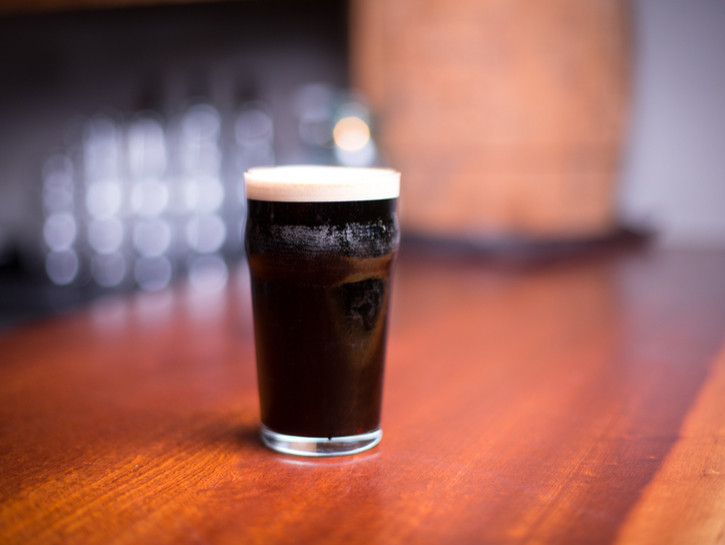It’s the age-old question. Porters and stouts are both heavy, dark beers that will make you feel full after drinking just one glass. But what is the difference between the two?
Many people believe the difference is that porters are lighter and sweeter, or that stouts are made with unmalted roasted barley. But neither of these facets distinguish the two beers. So what’s the difference? It’s a trick question — today, breweries use the terms interchangeably and there is no defining difference between the two.
Allow us to explain:
What Is A Traditional Porter?
A traditional porter tends to be fruiter, lighter and less bitter than its stout counterpart. Porters are made with hops, dark malted barley and top-fermenting ale yeasts for a taste between sweet and bitter.
What Is A Traditional Stout?
Stouts, such as Guinness, are dense, creamy and often have a coffee-like flavor. They’re more bitter than porters and primarily made with unmalted roasted barley. Stouts are the darkest beers and rank the highest on the Standard Reference Method, a scale that classifies beer by color.

Frantisekf/Shutterstock
The Origins Of The Porter And Stout
In 18th-century England, Londoners began brewing brown beer that later became known as the porter. The porter was the most in-demand beer brew — it was dark, medium-bodied, malty and filled with hops.
As the drink took off, different breweries began experimenting with the recipe. Brewers began making stronger versions of the porter that they called “stout porters” or “brown stouts,” which was eventually shortened simply to “stouts.” These stouts were made with a greater alcohol content and a few of the porter’s traditional ingredients were substituted to achieve a bolder flavor.
But in the 19th century, the Londoners’ recipes began changing, and some porters were becoming stronger than stouts. Today, after centuries of brewers tinkering with their recipes, the line between porters and stouts is indistinguishable.

qwasder1987/Shutterstock
So, Is There A Defining Difference At All?
Traditionally, the stout is a stronger descendant of the porter. But over time, some breweries some began making drinks stronger than stouts, but referring to them as “porters.” Conversely, drinks weaker than traditional porters were made but still referred to as “stouts.”
Today, porters and stouts are essentially interchangeable, and there are no distinct differences between the two types. A dark heavy beer can be called a porter by one brewing company, while an identical drink could be called a stout by another.

Kirill Z/Shutterstock
